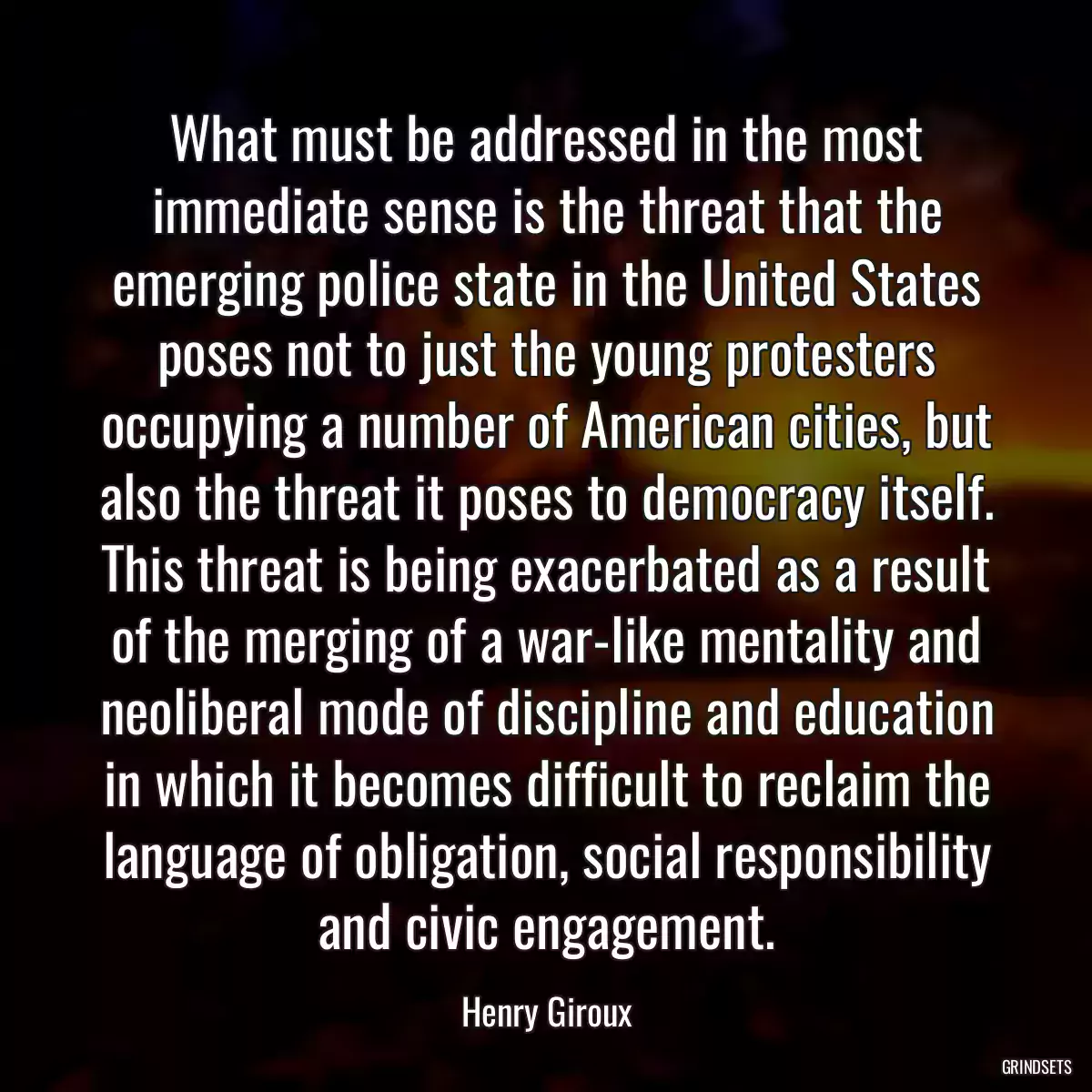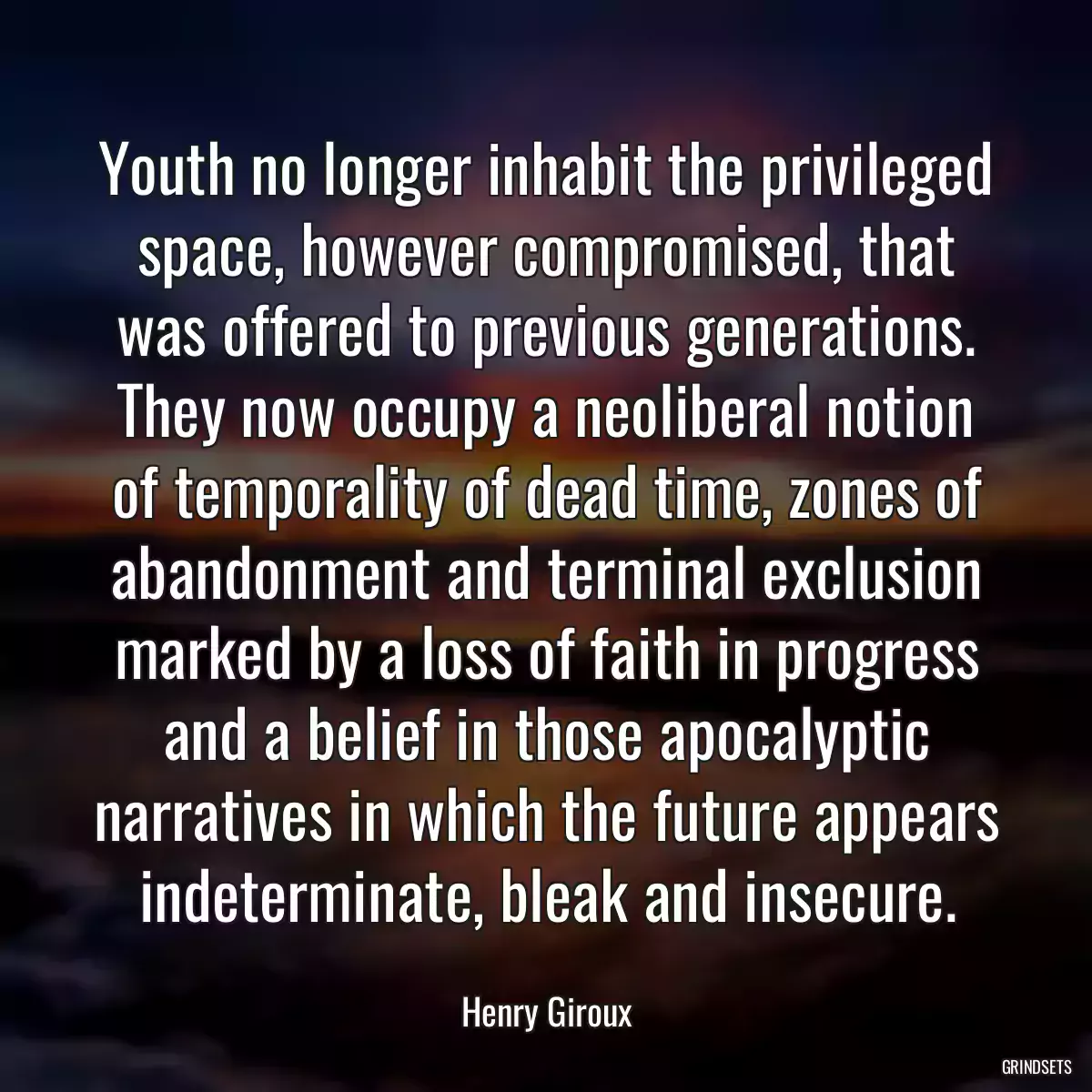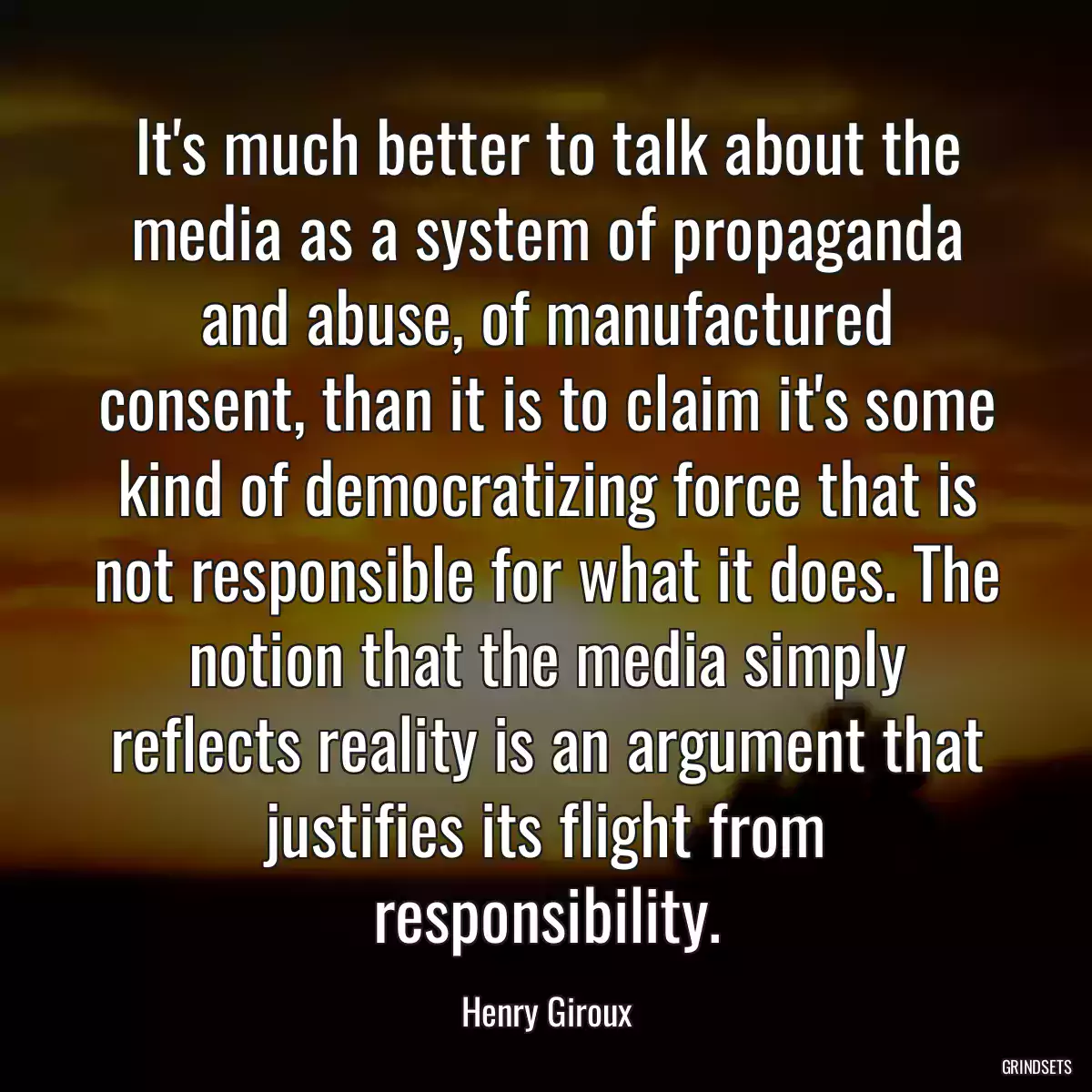
What must be addressed in the most immediate sense is the threat that the emerging police state in the United States poses not to just the young protesters occupying a number of American cities, but also the threat it poses to democracy itself. This threat is being exacerbated as a result of the merging of a war-like mentality and neoliberal mode of discipline and education in which it becomes difficult to reclaim the language of obligation, social responsibility and civic engagement.

